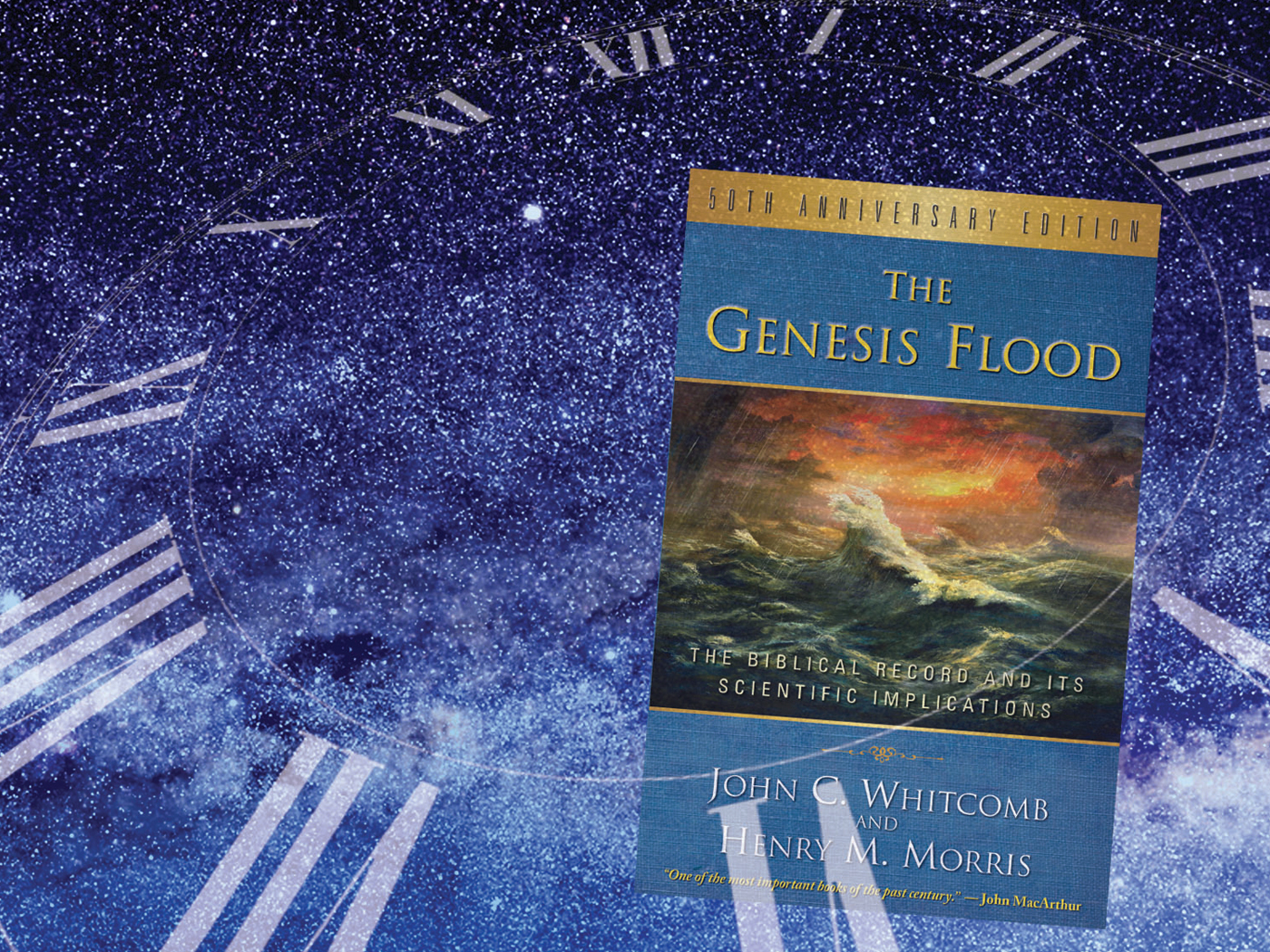Creationism is being fitted for new clothes today by a number
of very articulate writers and speakers, and it is hoped by
many that this will help it gain acceptance in the elite company
of academics who have heretofore opposed it. One leader of the
opposition to any form of creationism, Dr. Eugenie C. Scott,
Executive Director of the National Center for Science Education,
calls this development neocreationism.
Phrases like "intelligent design theory,"
"abrupt appearance theory," "evidence against
evolution," and the like, have sprung up, although the
content of many of the arguments is familiar. This view can
be called "neocreationism."1
Scott notes that the arguments for neocreationism are the same
arguments that have been used by traditional creationists for
many years. The new clothing is not so much what has been added,
but what has been taken off.
Neocreationists are by no means identical to their
predecessors, however.... Neither biblical creationists nor
theistic evolutionists.... Most of them are "progressive
creationists."2
This new creationism is really not very new, except perhaps
for the terminology. Progressive creationists, as well as traditional
creationists, have been documenting intelligent design (that
is, the magnificently organized complexity of every living creature)
and "abrupt appearance" (that is, the complete absence
of any true transitional forms in the fossil record) for well
over 150 years.
But note what is missing. The neocreationists are not "Biblical
creationists," Scott says. They may believe that the Bible
is the word of God, but they assume its testimony is irrelevant
to their arguments. As Nancy Pearcey says:
Design theory is also redefining the public school
debate. At issue is not the details of evolution versus the
details of Genesis; it's the stark, fundamental claim that life
is the product of impersonal forces over against the claim that
it is the creation of an intelligent agent.3
Now, this approach is not really new, either. During the past
quarter century, ICR scientists have participated in well over
300 creation/evolution debates with university professors on
college and university campuses, and each debate is intentionally
framed to deal only with the scientific evidences, never
with "the details of Genesis." Other creation lectures
have been given on hundreds of campuses and scientific meetings
with the same format, dealing only with science.
In fact, ICR has also published a number of books4
that present the case for creation strictly from a scientific
perspective with no reference to religion. These debates and
books have been successful in winning many individual scientists
and others to belief in creation and frequently as a tool in
winning them eventually to saving faith in Christ.
But what it will not do is displace evolutionism as
the reigning paradigm in the intellectual community. One form
or another of evolutionism, either atheistic or pantheistic,
has been the reigning paradigm in every age since the beginning
of human history (with one exception), and the prophetic Scriptures
indicate that it will still be so when the Lord Jesus Christ
returns at the end of this age to set up His own eternal kingdom.5
That one exception consists of those small communities in many
different nations and times who have believed in a personal
Creator God who created all things, and who has revealed His
purposes in creation and redemption through His written word,
the Holy Scriptures.
In more modern times, William Paley popularized the design
argument with his great book, Natural Theology, first
published in 1802, profoundly influencing the English speaking
world of his day—even including Charles Darwin! The book
began with a detailed description of the "irreducible complexity"
of a functioning watch, noting that even the most rabid skeptic
would acknowledge that the watch—or at least its prototype—must
have been designed and made by a skilled watchmaker. Just so,
he argued persuasively, the much more complex universe required
a universe-maker. These themes of intelligent design are compellingly
developed at great length in Paley's 402-page book.
Darwin, however, wanted to find a way to escape Paley's conclusion,
not for scientific reasons, but because he refused to accept
a God who would condemn unbelievers like his father to hell.6
Many modern Darwinians now follow him in maintaining that what
appear to be evidences of design can also be explained by natural
selection.
Richard Dawkins, Professor of Zoology at Oxford University,
is the most articulate present-day advocate of neo-Darwinism,
which maintains that evolution proceeds gradually through the
preservation of small beneficial mutations by natural selection.
Dawkins, a doctrinaire atheist, has published an influential
book called The Blind Watchmaker. Dawkins comes down
hard on "fundamentalist creationists" but even harder
on modern anti-Darwinists who try to insert God somehow into
the "science" of origins.
I suppose it is gratifying to have the Pope as an ally in the
struggle against fundamentalist creationism. It is certainly
amusing to see the rug pulled out from under the feet of Catholic
creationists such as Michael Behe. Even so, given a choice between
honest to goodness fundamentalism on the one hand, and the obscurantist,
disingenuous doublethink of the Roman Catholic Church on the
other, I know which I prefer.7
Dawkins is gloating over the fact that the Pope is an evolutionist,8
but he is also impatient with the Pope's insistence that the
human soul has been "created." Everything,
according to Dawkins and the modern neo-Darwinians, is attributable
solely to the action of time and chance on matter, so that what
appears to be evidence of design is really evidence of
the creative power of random mutation and natural selection.
Although Dawkins calls Behe a creationist, Behe himself claims
to be an anti-Darwinian evolutionist.
More and more evolutionary biologists these days, in fact,
are rejecting neo-Darwinism, acknowledging that the gaps in
the fossil record (which have repeatedly been emphasized by
creationists ever since Darwin's day, especially by the scientists
representing the creation revival of the past four decades)
make gradual evolution very hard to defend. Very few of these
(if any) are becoming creationists, however—not even neo-creationists.
The evidence of "abrupt appearance" is interpreted
by them as "punctuations" in the "equilibrium"
of the natural world. The increasing complexity of organisms
in so-called evolutionary history is not interpreted as coming
from intelligent design but as order emerging from chaos, probably
by the mechanism of so-called "dissipative structures."9
Other evolutionists recognize that there is, indeed, evidence
of intelligent design in the world, but they take it as evidence
of Gaia (the Greek Earth goddess, or Mother Nature) or of some
"cosmic consciousness." This New Age movement is essentially
a return to ancient evolutionary pantheism, a complex of religions
now growing with amazing rapidity all over the world. Thus Darwinians
interpret the evidence of design in nature as natural selection,
punctuationists interpret it as order through the chaos of dissipative
structures, and New Age evolutionists interpret it as the intelligence
of Mother Earth.
Getting people to believe in "intelligent design"
is, therefore, neither new nor sufficient. People of almost
every religion (except atheism) already believe in it. The only
ones who do not, the atheists, have rejected it in full awareness
of all the innumerable evidences of design in the world. These
cannot be won by intellectual argument, no matter how compelling.
As Isaac Asimov said:
Emotionally, I am an atheist. I don't have the evidence
to prove that God doesn't exist, but I so strongly suspect he
doesn't that I don't want to waste my time.10
King David, by divine inspiration, had a comment on the attitude
of such atheists: "The fool hath said in his heart, There
is no God" (Psalm 14:1; also Psalm 53:1). Similarly, in
Romans 1:21,22, the apostle Paul, discussing such people, said:
"When they knew God, they glorified Him not as God, neither
were thankful; but became vain in their imaginations, and their
foolish heart was darkened. Professing themselves to be wise,
they became fools."
This is strong language, and "design theorists" might
recoil from using it, especially concerning their own academic
colleagues, but it was God who said it! And intellectual fools
are not won by intellectual arguments; if they are changed at
all, it will be through some traumatic experience brought about
by the Holy Spirit in answer to prayer.
Such Scriptures are speaking of those who are atheists "in
their hearts." Like Asimov (and Dawkins, et al.), they
are "emotional" atheists who have tried to ignore
or subvert the real evidence with the pseudo-science of evolutionary
speculation. There are, on the other hand, many "reluctant
atheists"—those who have been so influenced by the
doctrinaire atheists among their teachers and other intellectuals,
that they feel they cannot believe in the God of the
Bible even though, in their hearts, they would like to believe.
People like this can be reached by sound evidence and
reasoning. In our debates, for example, we know from many personal
testimonies that a good number of students and young professionals
in the audiences who had felt they had no choice but atheistic
evolutionism, have indeed been won to solid creationism and
soon to saving faith in Christ, at least in part by the scientific
evidence. We hope this will be the experience of those who are
now stressing "intelligent design," just as has often
been true in the past.
But it will not be so if they stop with just the evidence
for design and leave the Designer—the God of the Bible—out
of it. Even though we intentionally limit our debates (and some
of our books) to the scientific evidence, everyone in
the audience and among our readers is well aware that we are
really undergirding Biblical creationism (including recent
Creation and the global Flood), because that is our clearly
stated position.
But modern "intelligent design theorists" intentionally
emphasize that, while they oppose materialism and Darwinian
evolutionism, they are not arguing for Biblical creationism.
At a conference on what was called "Mere Creation,"
held at Biola University in November 1996, the main speaker,
Phillip E. Johnson, said in his concluding remarks:
For the present, I recommend that we also put the
Biblical issues to one side. The last thing we should want to
do, or seem to want to do, is to threaten the freedom of scientific
inquiry. Bringing the Bible anywhere near this issue ... closes
minds instead of opening them.11
In a widely reprinted article, a New York Times writer
said:
These new creationists avoid one pitfall of their
predecessors by not positing, at least publicly, the identity
of the creator. "My decision is simply to put it off,"
Mr. Johnson said, "and I recommend that to others."12
Now that may be all right as a temporary agreed-on constraint
for a particular discussion—as in one of our scientific
debates. But that cannot be the goal, and we need to be honest
about this if we really believe the Bible to be the word of
God. The innumerable evidences of intelligent design in nature
really do not point to theistic evolution or dissipative structures
or Gaia, but if we stop our program without arriving at the
true God of the Bible as the Creator of all things, then many
converts to "design" will gravitate to one of these
other beliefs and never come to know Jesus Christ as their Savior.
As faith without works is dead, so is design without the Designer!
References
1 Eugenie C. Scott, "Creationists
and the Pope's Statement," Quarterly Review of Biology
(vol. 72, December 1997), p. 403.
2 Ibid.
3 Nancy Pearcey, "Debunking Darwin," World
(vol. 11, March 1, 1997), p. 14.
4 The most recent of these is Science and Creation,
Volume II in The Modern Creation Trilogy, by Henry M.
Morris and John D. Morris (Green Forest, Arkansas: Master Books,
1996), 343 pp.
5 For documented evidence of the age-long, worldwide
dominance of evolutionism, see The Long War Against God,
by Henry M. Morris (Grand Rapids: Baker Book House, 1989), 344
pp.
6 Charles Darwin, Autobiography. Edited by
Nora Barlow (New York: Norton, 1969), p. 87.
7 Richard Dawkins, "Obscurantism to the Rescue,"
Quarterly Review of Biology (vol. 72, December 1997),
p. 399.
8 Ever since the publication of Pope John Paul II's
October 1996 message on evolution, there has been controversy
over what he actually said. The actual official English translation
of his speech appeared in the October 30 edition of L'Osservatore
Romano, and it does indeed affirm that he said that "the
theory of evolution is more than a hypothesis" (Catholic
News Service, November 19, 1996). He also spoke of "several
theories of evolution," but by this he was referring mainly
to the "materialist, reductionist, and spiritualist interpretations."
9 See my article, "Can Order Come Out of Chaos?"
"Back to Genesis" No. 102, ICR Acts & Facts,
June 1997, 4 pp.
10 Isaac Asimov, Interview by Paul Kurtz: "An
Interview with Isaac Asimov on Science and the Bible,"
Free Inquiry (vol. 2, Spring 1982), p. 9.
11 Phillip E. Johnson, "Separating Materialist
Philosophy from Science," The Real Issue (vol. 15,
November/December 1996). The "Mere Creation" conference
involved over a hundred participants, practically all of whom
were either theistic evolutionists or progressive creationists.
According to Eugenie Scott, "most of them have appointments
at secular institutions" (op cit., p. 403).
12 Laurie Goodstein, "New Light for Creationism,"
New York Times, December 21, 1997.
* Dr. Morris is Founder and President Emeritus of
ICR.






